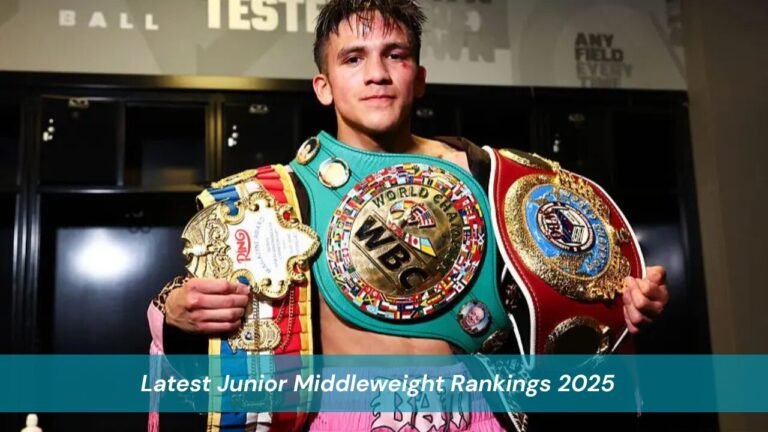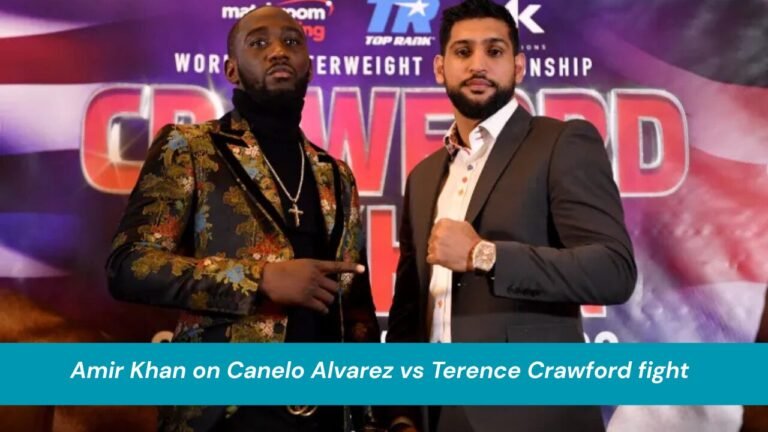British boxing has always held a unique spot on the global stage. From iconic rivalries that captivated millions to fresh talent breathing new life into the sport, the UK’s boxing scene continues to evolve. Today, more than ever, boxing in Britain is rich with intensity, controversy, and a sense of cultural pride. Whether you’re following rising prospects or reminiscing about legendary showdowns, there’s no denying the UK’s role in shaping boxing’s global narrative.
This article explores the heartbeat of British boxing, its current landscape, up-and-coming stars, unforgettable rivalries, and the biggest events that have left fans wanting more. If you’re looking to understand why British boxing still draws massive crowds and media attention, keep reading.
Key Takeaways
- British boxing remains a global force, producing elite champions, packed stadiums, and worldwide broadcasts.
- Iconic rivalries and modern matchups continue to drive massive fan engagement and media attention.
- A strong grassroots system and Olympic success fuel a steady pipeline of future stars.
- Women’s boxing in the UK has grown rapidly, gaining equal visibility, credibility, and commercial value.
The Rise of British Boxing From Underdogs to Icons
British boxing wasn’t always a dominant force. In earlier decades, it was often overshadowed by American fighters. But the tides began to shift in the 1990s and 2000s, as names like Lennox Lewis, Ricky Hatton, and Joe Calzaghe stormed the global scene.
Today, British fighters like Tyson Fury, Anthony Joshua, and Katie Taylor (though Irish, heavily supported in the UK) headline some of the biggest boxing nights in the world. The UK’s commitment to developing grassroots boxing programs and its dedicated fan base have laid the foundation for its current prominence.
Modern-Day Rivalries Keeping Fans Hooked
Nothing fuels boxing like a good rivalry and British boxing has had its fair share. The back-and-forth between Chris Eubank Sr. and Nigel Benn in the 1990s was a cultural phenomenon, as much about personal pride as it was about boxing prowess.
More recently, the rivalry between Carl Froch and George Groves became legendary. Their 2014 rematch at Wembley Stadium drew over 80,000 fans, making it one of the most attended fights in British history. The bitter tension, brutal build-up, and unforgettable knockout created one of boxing’s most iconic moments.
And the drama hasn’t stopped. Conor Benn vs. Chris Eubank Jr., a generational grudge match that echoes the past, is a story still unfolding one that fans eagerly await to reach its explosive peak.
Prospects to Watch The Future of British Boxing
The next generation of British boxing is nothing short of promising. Fighters like Adam Azim, Ben Whittaker, and Lauren Price are showing early signs of elite-level talent.
Azim, often compared to Amir Khan for his explosive speed and footwork, has been making waves in the super-lightweight division. His performances so far have captured the attention of fans and pundits alike.
Whittaker, with his flamboyant style and Olympic pedigree, brings both flash and substance. He’s shaping up to be not just a great boxer, but also a marketable star.
Meanwhile, Lauren Price, a trailblazer in women’s boxing and a gold medalist, is rapidly climbing the professional ranks, inspiring a new generation of female fighters.
The Business of Boxing: Why Britain Matters
It’s not just the fighters, British promoters and venues are also key players in global boxing. Promoters like Matchroom Boxing and Queensberry Promotions are leading the charge in staging world-class bouts, often on prime-time platforms like DAZN and Sky Sports.
The UK market is also incredibly lucrative. Boxing events at The O2 Arena, Manchester Arena, and Wembley Stadium regularly sell out, proving the public appetite remains strong. British boxing is not just a sport, it’s an entertainment powerhouse.
Boxing and Identity Why It Resonates in the UK
In many UK communities, boxing is more than a sport, it’s a lifeline. It offers young people a path forward, a way out of hardship. From council estates in London to gyms in Sheffield, boxing gyms serve as sanctuaries for discipline, mentorship, and community.
This deep-rooted connection explains the fierce loyalty fans show to their local heroes. It’s why underdog stories resonate so deeply and why boxers often carry the weight of their towns and cities on their shoulders.
Historic Moments That Defined British Boxing
Several moments stand out in the timeline of British boxing. The 2012 London Olympics were a game-changer, producing stars like Anthony Joshua and Nicola Adams. Joshua’s later victory over Wladimir Klitschko in 2017 wasn’t just a win, it was a passing of the torch and a declaration that British boxing was now elite.
Another unforgettable night was Tyson Fury’s comeback in 2018. Battling personal demons, he returned to the ring and eventually reclaimed the heavyweight crown, becoming one of the sport’s most compelling stories.
These moments didn’t just make headlines, they helped redefine British boxing’s identity.
Women’s Boxing in Britain A Revolution in Progress
Women’s boxing in the UK has exploded in popularity in recent years. Fighters like Savannah Marshall and Chantelle Cameron are headlining events and earning global recognition.
Katie Taylor’s historic bouts, though representing Ireland, have brought massive attention to the sport in the UK. Her fights against Amanda Serrano and Chantelle Cameron have not only broken records but challenged long-standing gender norms in boxing.
This revolution is being fueled by greater TV coverage, better training opportunities, and a growing fan base eager to support female athletes on the same level as men.
The Global Stage British Fighters Making Waves
British fighters are not just dominating domestic cards they’re making global noise. Tyson Fury’s reign as WBC heavyweight champion has captivated fans across the world. His charisma, showmanship, and resilience have made him one of the most talked-about athletes on the planet.
Anthony Joshua, despite recent losses, remains a global superstar. His fights are broadcast across continents, and his brand is as strong as ever. Meanwhile, fighters like Leigh Wood and Sunny Edwards are proving that British champions can come from every weight class.
Controversies and Comebacks The Other Side of Fame
Not all headlines are celebratory. The British boxing scene has also seen its share of controversies. Drug test failures, last-minute fight cancellations, and promotional disputes have at times cast a shadow over the sport.
Yet, these setbacks often fuel comebacks. Tyson Fury’s personal redemption arc is a prime example. His journey from mental health struggles and substance abuse to heavyweight glory is one of modern sport’s most inspiring narratives.
Why British Boxing Keeps Growing
There’s something magnetic about British boxing. It blends tradition with innovation, grit with glamour. It thrives on rivalries but also celebrates unity in the ring. As boxing globally battles for relevance, Britain continues to produce stories that connect deeply with audiences.
Whether it’s a rising amateur making their pro debut or a stadium-filling superstar defending their title, British boxing keeps delivering moments that matter.
FAQs
What makes British boxing different from American boxing?
British boxing tends to emphasize technique, endurance, and crowd engagement. Venues like Wembley and the O2 Arena offer unmatched atmospheres, making British fights a unique experience.
Who are the most promising British boxing prospects?
Fighters like Adam Azim, Ben Whittaker, and Lauren Price are gaining recognition for their early performances and potential to reach world champion status.
Which British boxing rivalries are considered iconic?
Rivalries such as Chris Eubank vs. Nigel Benn and Carl Froch vs. George Groves have become part of British boxing folklore due to their intensity and cultural impact.
How has British women’s boxing changed in recent years?
It has grown significantly with more televised fights, better sponsorship, and role models like Katie Taylor and Savannah Marshall leading the charge.
Where can I watch major British boxing events?
Most major fights are broadcast on Sky Sports, BT Sport, and DAZN, with replays and highlights available on their official platforms.
Conclusion
British boxing isn’t just surviving, it’s thriving. From the gritty gyms of Manchester to the bright lights of Wembley, it’s clear this is a sport deeply embedded in UK culture. With a perfect storm of talented prospects, historic rivalries, and global appeal, the future of British boxing looks brighter than ever. Visit boxing essential to explore more.




